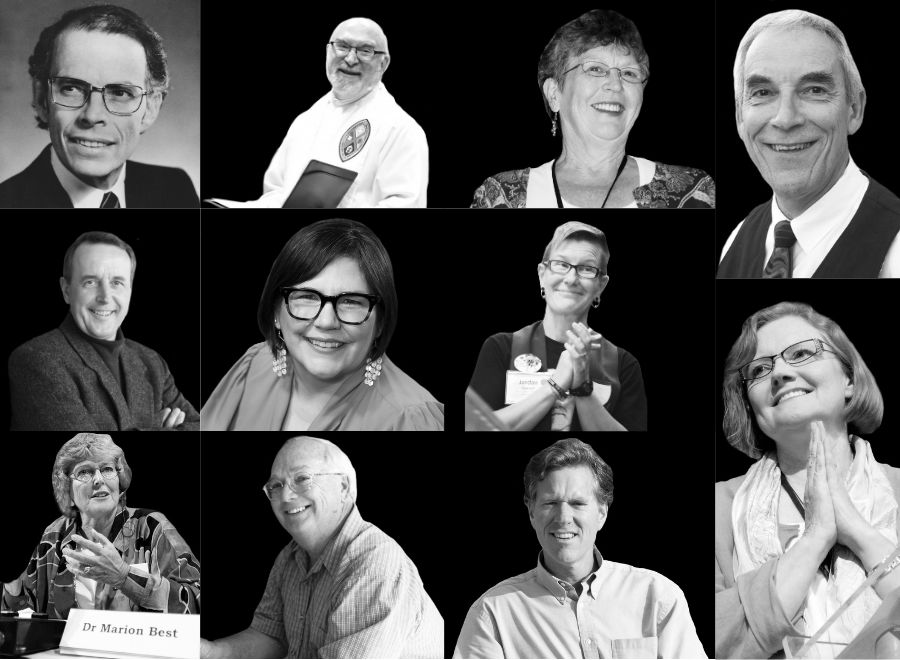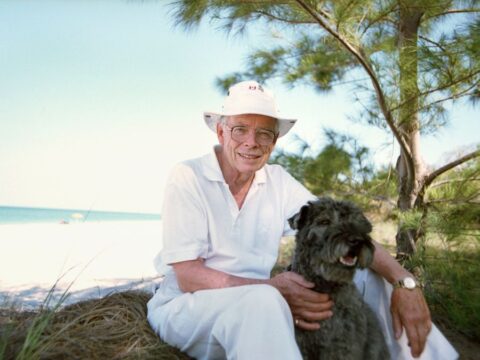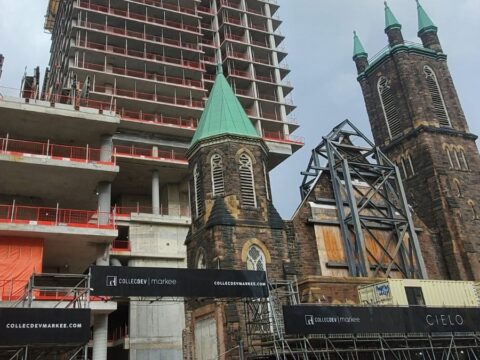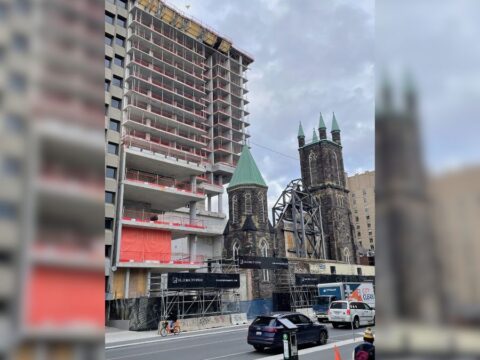In the century since The United Church of Canada was formed, 44 moderators have represented the church nationally and internationally. These spiritual leaders have shepherded the church through enormous change, presided over moments of accountability and offered comfort and challenge to those in the pews. Broadview asked 10 past moderators and the current moderator to reflect on the most memorable moments of their tenure, what the United Church stands for and what they think the denomination will look like in another 100 years.
You may unsubscribe from any of our newsletters at any time.
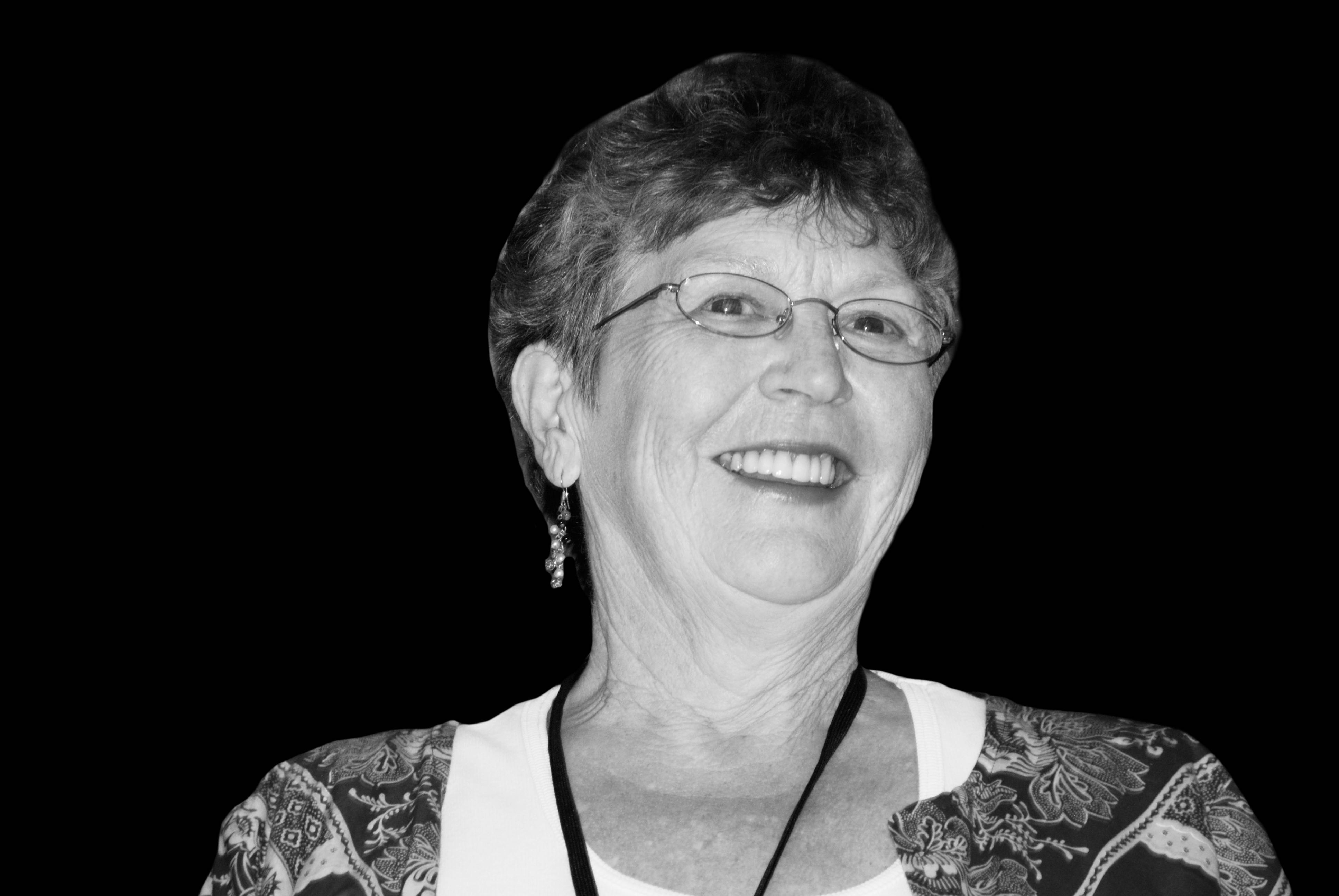
Very Rev. Marion Pardy, 37th moderator, 2000-2003
Tell me a highlight from your time as moderator
During the issue of the war with Iraq, I, along with other church leaders, wrote letters to the government beseeching them to stop the war rather than engage in it. We had a 30-minute audience with Prime Minister Jean Chrétien. At a serendipitous moment, I gave the prime minister our New Creed bookmark with words: “Mr. Prime Minister, here is our United Church of Canada Creed which points us to the awareness that we live in God’s world, where we are called to love and serve others and seek justice. It is in English and French.” Then he quietly said: “Thank you. I do pray and I pray in French.” It was one of the many spontaneous expressions of God’s presence within, among and beyond us that I was privileged to experience as moderator.
What does The United Church of Canada stand for?
An active church member said to me: “You know, if someone asked me what does The United Church of Canada stand for, I wouldn’t have an answer. At the same time, if I attended a worship service that wasn’t the United Church, I would know it!” I suggest that what they meant by this statement is this: The United Church of Canada stands for (a) A “Holy Mystery who is Holy Love” (A Song of Faith 2006) (b) That love finds its embodiment in Jesus, called the Christ (c) That embodiment, to a similar or lesser extent, finds its embodiment in the followers of Jesus, then and now (d) That embodiment of love calls us to expressions of love and justice amidst the uncertainties of life (personal and societal; local and global), advocating for “fullness of life” for all and for our cosmos, that God’s will be “done on earth as it is heaven.”
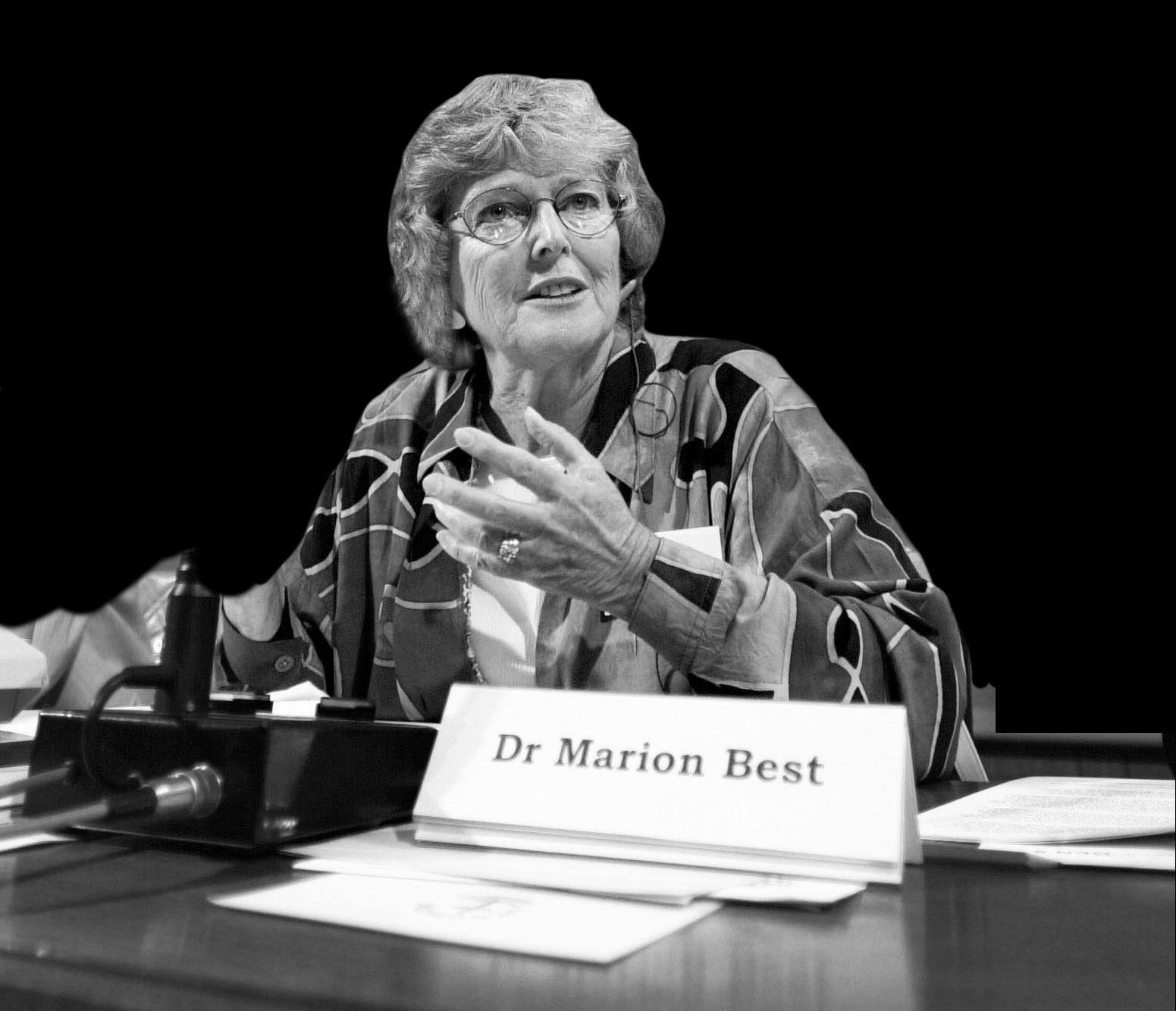
Marion Best, 35th moderator, 1994-1997
What does The United Church of Canada stand for?
The New Creed states what we believe as a church and calls on us to proclaim Jesus, crucified and risen, our judge and our hope. We are supported and nurtured by those in an educated order of ministry. We are called to engage the Truth and Reconciliation process, commit to anti-racism, anti-poverty, gender equity, inclusiveness, human rights, peace and justice. We engage in this calling with global partners, take part in interfaith dialogue, work ecumenically and are active in the World Council of Churches as we seek Christian unity and work together on humanitarian issues.
What do you think the denomination will look like in another 100 years?
I don’t know if there will be a United Church of Canada in 2125. We are in a time of increasing secularism and lack of confidence in institutions. There has been a decline in church attendance in North America in the past 50 years [which] has increased significantly in recent times. There have been periods in history where Christianity has declined and been kept alive by small communities of faith. Whether or not there is a United Church of Canada, I believe there will continue to be Christian communities of faith, dedicated to deep spirituality, bold discipleship and daring justice.
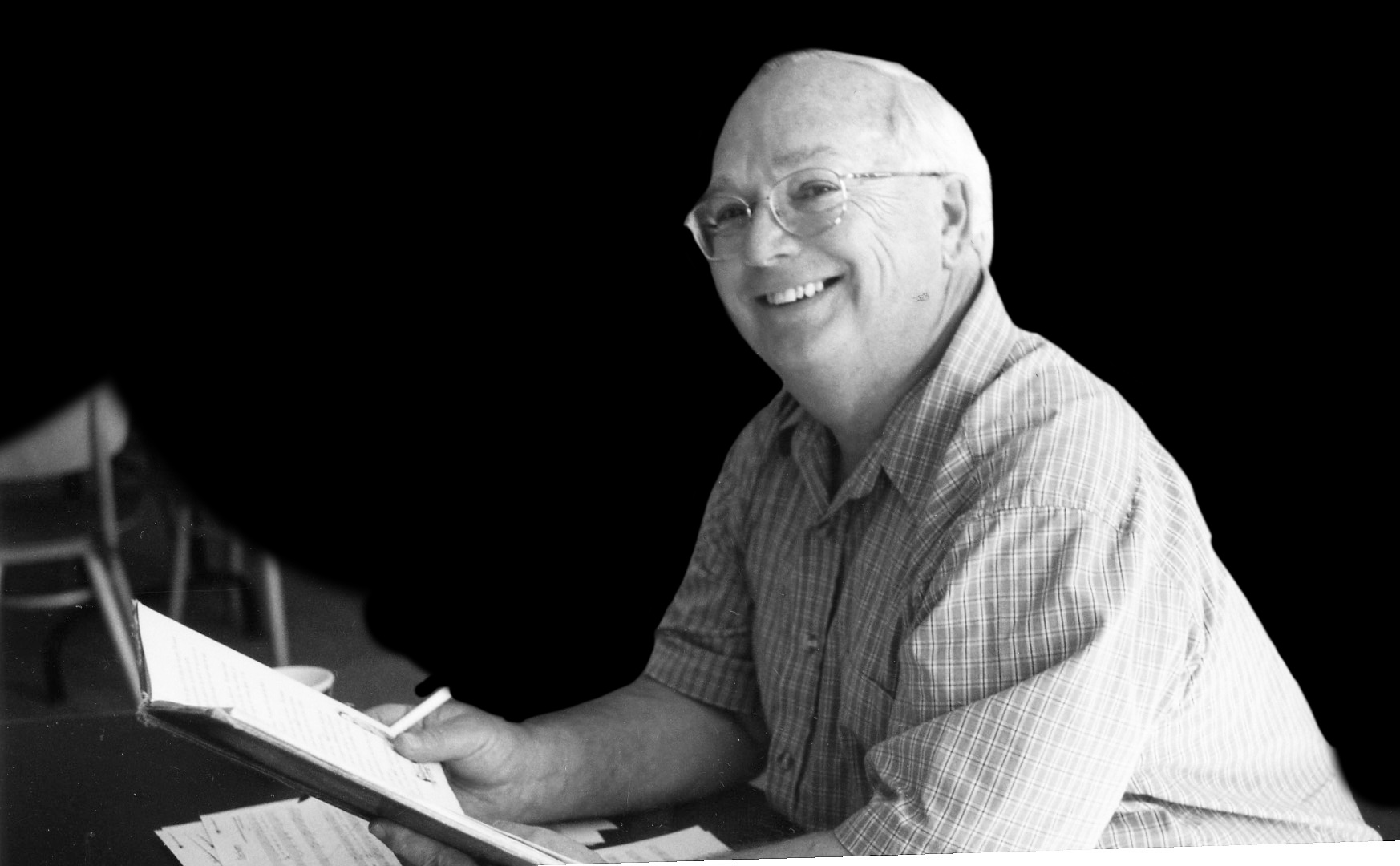
Very Rev. Walter Farquharson, 33rd moderator, 1990-1992
Tell me a highlight from your time as moderator
Shortly after I was elected moderator, a reporter from a Toronto newspaper posed this scenario: “You are a new minister in a rural congregation – there is a knock at the door. You are met by a group of angry parishioners upset by General Council’s decision re: the ordination of gay and lesbian people. What do you do?” I hesitated then said, “Hopefully I’d explain to the group that the doorstep was not the place for the necessary conversation – can we set a time and place when we share a meal, and talk together as friends and disciples?” I then added for the benefit of the interviewer, “The church has an ancient practice of coming to the table to find unity and to discern their call to be disciples of Jesus.” A few days later a story appeared with this headline “New UC Moderator Says Answer to Church’s Problems Found in Potluck Suppers.” That article elicited quite a few angry letters but I began using it as a starting place to recognize that table and conversation were essential places and times for grace to break through the barriers created.
What does The United Church of Canada stand for?
I believe ours is an incarnational faith. All creation is an expression of God, God’s intention, purpose, presence. God is in our human story – part of it, identified with it, seeking always to be expressed in purposefulness and presence. Healing, forgiveness, reconciliation, love – these in their singularity and in combination provide and embody our calling, our ministry, our goal.
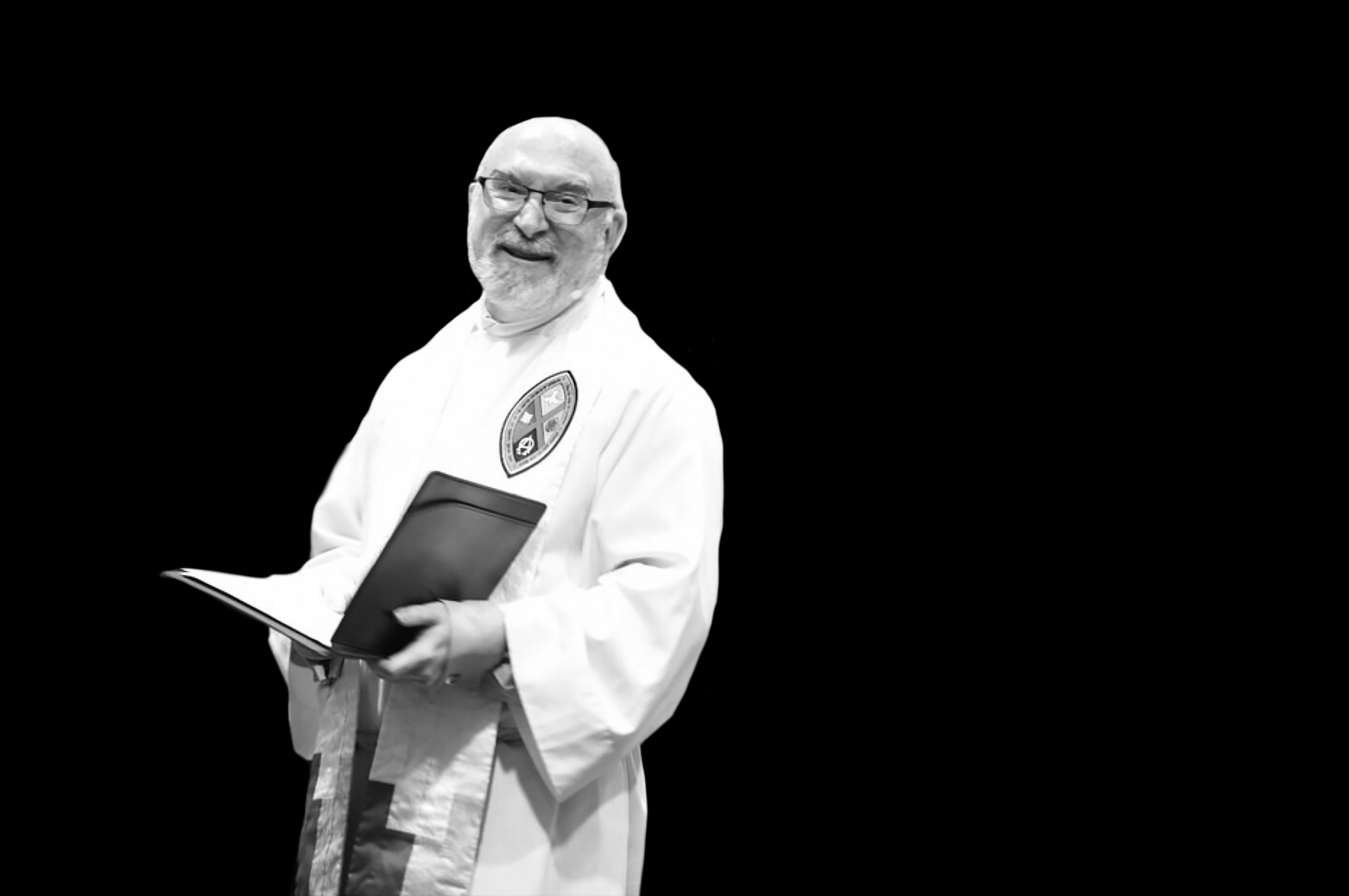
Very Rev. Richard Bott, 43rd moderator, 2018-2022
Tell me a highlight from your time as moderator
During the worst of the COVID-19 pandemic, I found myself in constant conversation with clergy colleagues and lay leaders serving communities of faith across The United Church of Canada. While there was very real fear, isolation and exhaustion, folks found ways to minister to both their congregational communities and their wider communities. They used both new and old technology to live out Christ’s ministries of education, word, service, sacrament, social justice and pastoral care.
What does the United Church stand for?
If I think back to my life in the United Church — not just in ministry leadership, but all of my life — I think that what The United Church of Canada stands for is captured in Jesus’ words in John 10:10b, “I came that they may have life and have it abundantly.” In the wideness of who we are and how we believe, in the myriad of ways that we live, we keep working for a world that is whole in its work for abundant life for all.
More on Broadview:
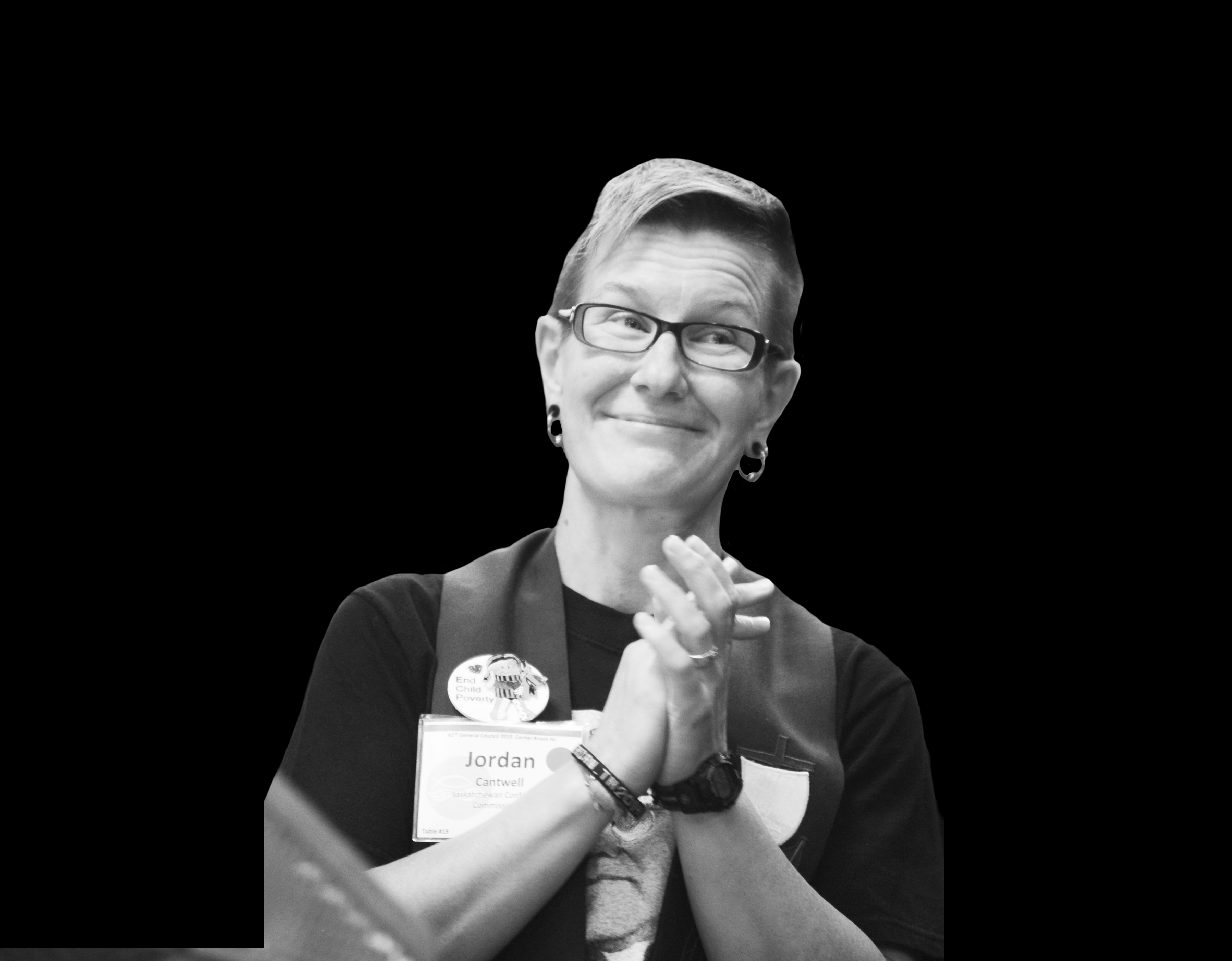
Very Rev. Jordan Cantwell, 42nd moderator, 2015-2018
What does the United Church stand for?
The words most often cited in response to this question are unity, inclusion, and justice. But what do we mean by these? We recognize that unity is not uniformity, but a choice to love and belong to one another despite differences in theology, culture and practice. We believe that God’s love excludes no one and we try to love like this. We seek justice that is rooted in love, mercy and dignity for all God’s creation, and strive to resist everything that undermines this kind of justice – especially when we find it in ourselves.
What do you think the denomination will look like in another 100 years?
There will be fewer congregations and more collaborative expressions of ministry. Denominationalism will be less important and intentional discipleship more important. We will be more racially, ethnically and linguistically diverse, and we will be better for it. We will be younger and more evangelical. And, if we can start becoming the church of 10 years from now today, then we may just be here in another 100 years.
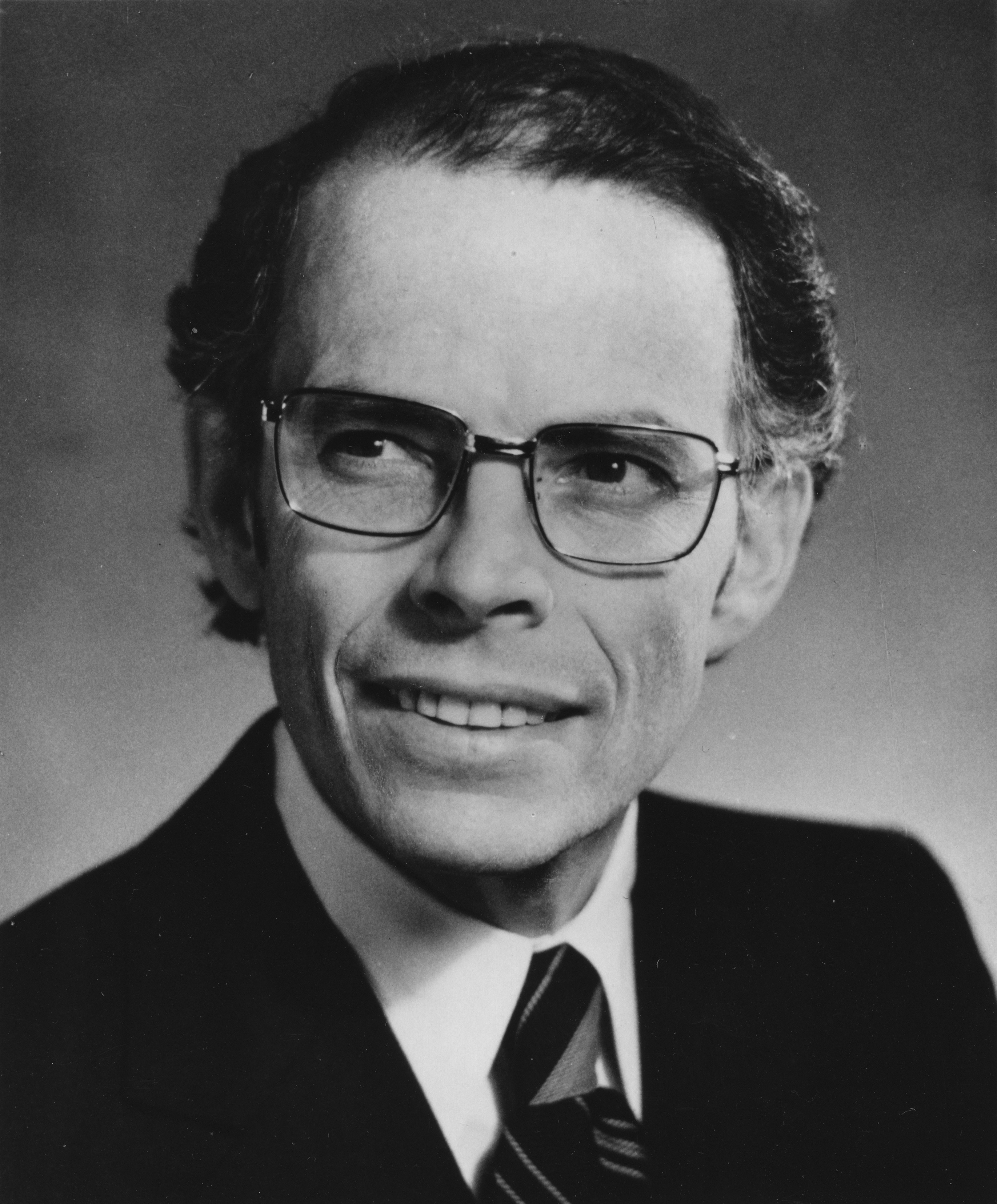
Very Rev. Bruce McLeod, 25th moderator, 1972-1974
What does The United Church of Canada stand for?
Inclusion in the welcoming name of Jesus Christ and commitment to social justice. I used to say church boards and committees should evaluate their faithfulness by asking themselves “What would happen if their church were lifted off the earth, and simply disappeared?”
Would the streets around, and the world beyond, sag noticeably, for lack of love?
Or would anyone notice at all, apart from those who liked to go there?
What do you think the denomination will look like in another 100 years?
More visible signs of what we used to call “worldwide ecumenism.” Not just “backyard” friendships with variously named Christians, but regular cooperation and partnership with people of other faiths. I remember visiting the then-external affairs minister Mitchell Sharp in 1973 with a delegation including Anglicans, Presbyterians and one Muslim. Mr. Sharp said “I can’t tell you apart.” We replied, “Neither can God!”
For more from Very Rev. Bruce McLeod, you can click here.
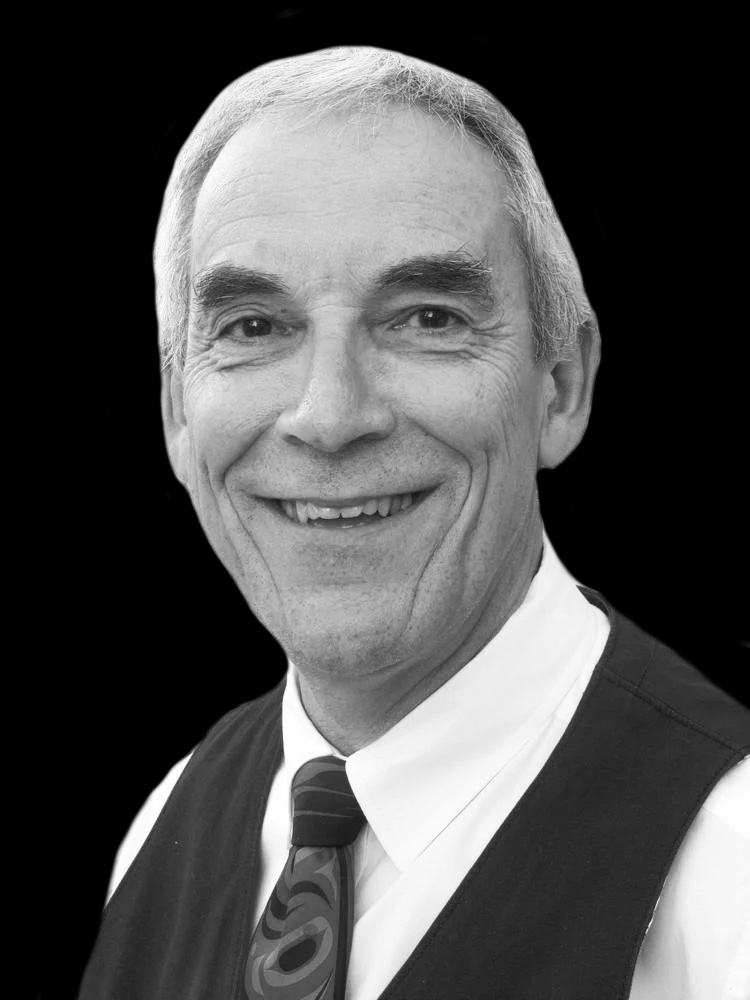
Very Rev. Gary Paterson, 41st moderator, 2012-2015
Tell me a highlight from your time as moderator
I was told that every moderator is allowed to do one crazy thing that requires money. Mine was to go on a funded pilgrimage with 100 UCC ministers, half of them under the age of 41, to the Greenbelt Festival in England where, for four days and with some 20,000 people, we explored the interplay of faith, justice and the arts, with an emphasis on new and varied expressions of what church might look like in our present times. One hundred UCC ministers returned home with energy and inspiration to start experimenting at home.
What does The United Church of Canada stand for?
It’s been said that the UCC is “the NDP at prayer”– take such a phrase as both compliment and critique. And remember that we are so much more than that; we stand for love – of God, neighbour, enemy and self. The 1968 New Creed is a strong and succinct statement of our faith and undergirds our centennial tagline: “Deep Spirituality; Bold Discipleship; Daring Justice.” Although certain phrases get overused – like “inclusive and progressive,” or “committed to “tikkun olam” (world repair) – they still ring true, as both fact and aspiration. Becoming an intercultural and reconciling church is central to our identity, and as an openly gay person, I celebrate our Affirming stance, and the welcome offered to the 2SLGBTQIA+ community, both locally and globally. As they say at my home church, “All of you are welcome here.”
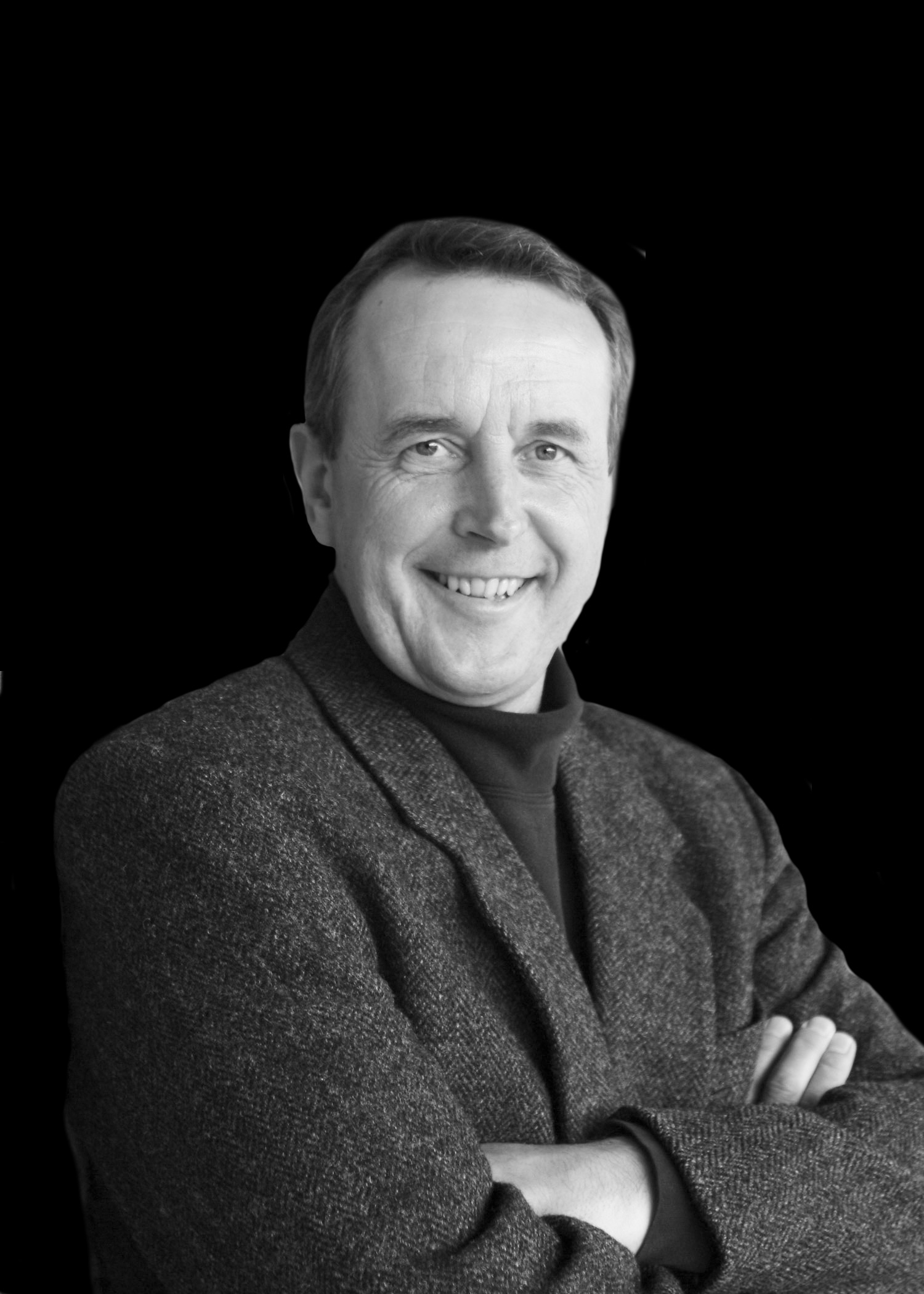
Very Rev. Peter Short, 38th moderator, 2003-2006
What does The United Church of Canada stand for?
A woman in Saskatchewan said to me, “No one could ever travel all the back roads of The United Church of Canada.” She was right, I know because I tried and didn’t even come close. The United Church doesn’t stand for anything. It doesn’t stand all, it moves. We walk back our work in residential schools. We walk ahead through the emerging landscape of human sexuality. We travel hand in hand with partners. We explore the mysteries of God in new songs. We are and have always been a territory of roads, trails, bridges, portages and streets. No one could ever travel it all.
What do you think the denomination will look like in another 100 years?
One hundred years from now, we will be living in the United Church just as our ancestors of 100 years ago are living in the church now. The seeds we are sowing today will have an outcome similar to that of the seeds in the parable of Jesus. Some of our effort is fated to die, some is destined to live. We cannot know the outcome but we know that whatever lives and bears fruit will not look like the seed we are sowing today. This calls for equal measures of humility and hope.
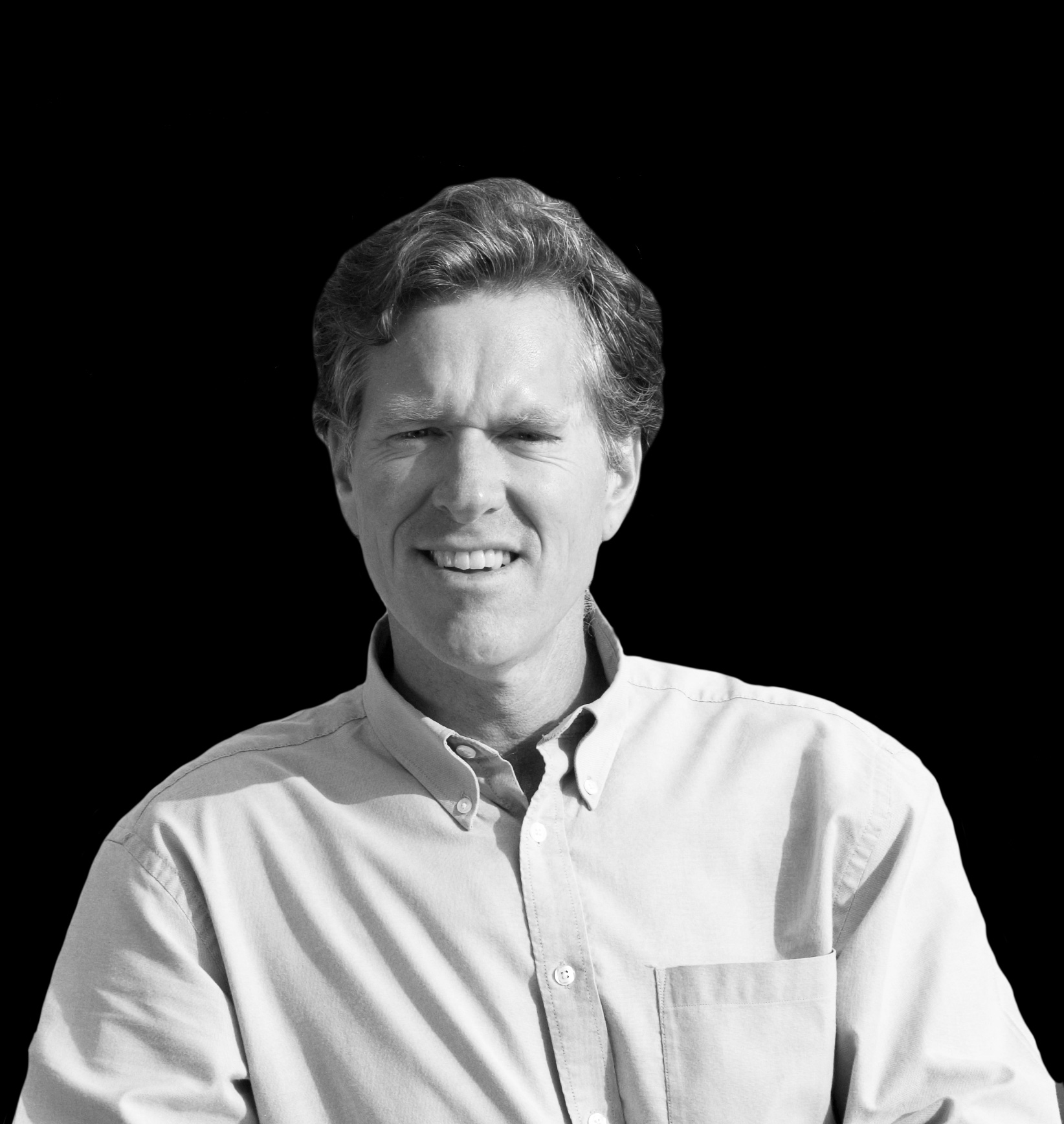
Very Rev. David Giuliano, 39th moderator, 2006-2009
Tell me a highlight from your time as moderator
Remembering the Children was an ecumenical national tour to advocate for a Truth and Reconciliation Commission on residential schools. Following the tour, Prime Minister Stephen Harper apologized to residential school survivors in the House of Commons on behalf of Canada. It was a privilege to be part of that event. It was also an honour to personally carry plaques containing The United Church of Canada’s apologies to Indigenous communities unaware of our apologies or work for right relations.
What do you think the denomination will look like in another 100 years?
Structurally? Who knows. I imagine we will be a numerically smaller band of countercultural outliers, stripped of privilege and allegiances with power. I pray that we commit fully to the race against the climate crisis; we continue to advocate for peace won by justice and economic equity; and that faith expands our hearts beyond their present boundaries.
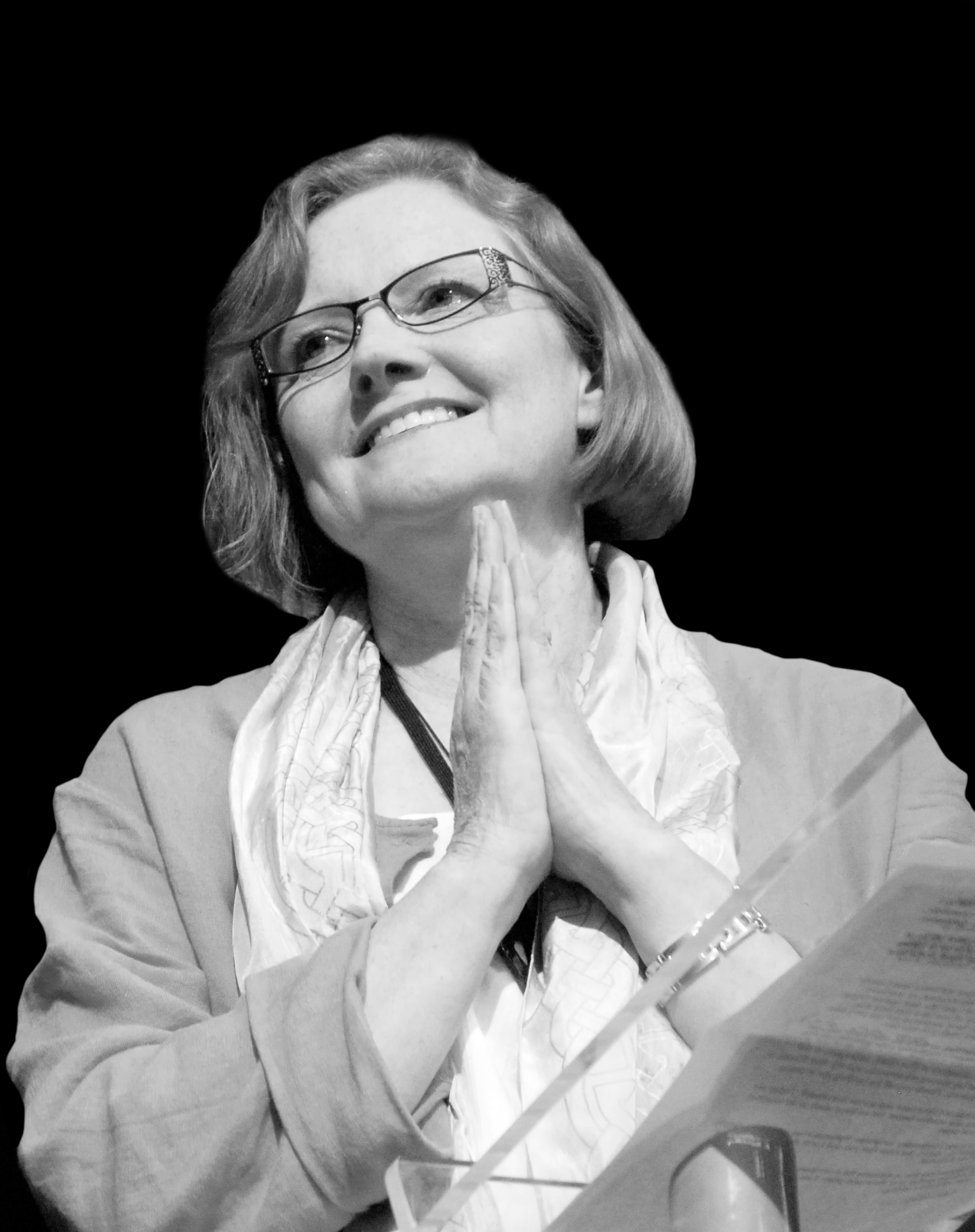
Mardi Tindal, 40th moderator, 2009-2012
What does the United Church stand for?
“Live Love” read the bold, colourful poster that caught my eye on the Toronto subway many decades ago. It was a compelling message from The United Church of Canada, and if you’re as old as I am and were living in Canada at the time, you too will remember that poster plastered throughout your community. We carry that message differently into every decade. When my young gym trainer was getting to know me, I mentioned our church. “Oh yeah,” he said, “You’re the church that cares about the environment.” Another way we continue to live love.
What do you think the denomination will look like in another 100 years?
I suspect we will be unrecognizable, if indeed we still exist. My question as we head toward that unknown is, how can we sustain the integrity of our faith amid deepening divisions and growing intolerance? How should we respond to rising antisemitism and Islamophobia, for example? My prayer is that our denomination will find the courage to continue being a uniting church in new and humble ways, pursuing a truth that’s greater than the views of competing factions, and providing trustworthy places to seek spiritual, social and ecological wholeness in the world God loves.
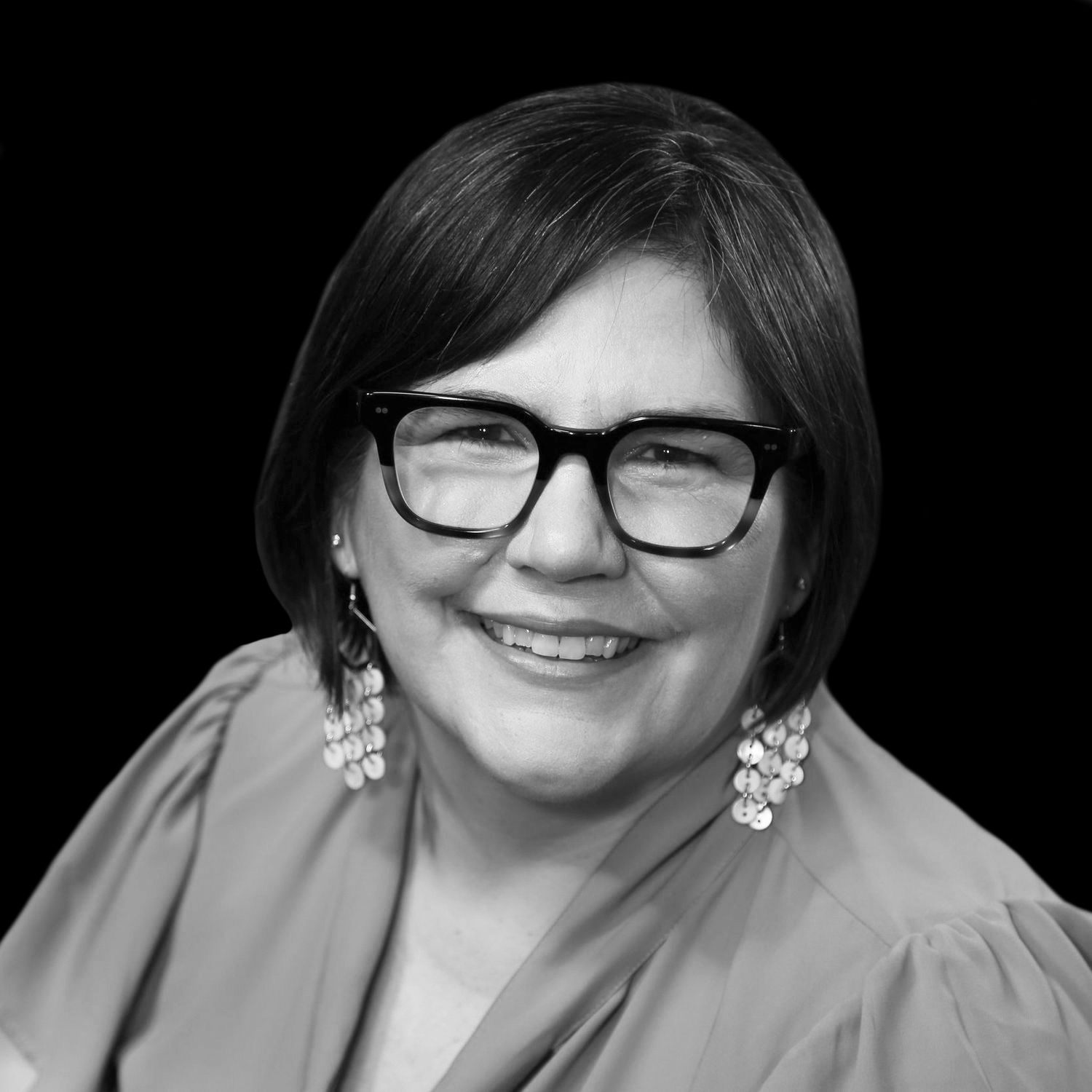
Rt. Rev. Carmen Lansdowne, 44th moderator, 2022-2025
What does the United Church stand for?
That depends who you ask. I love our call to the church to practice deep spirituality, bold discipleship and daring justice. I think this gets at the heart of who we are, but we are also very congregationalist at heart (even more so with the elimination of presbyteries.) Every community of faith can discern for themselves what is their local and unique expression of this call. These six simple words allow us to practice unity in our diversity in a way that lives up to our motto from the Gospel of John: “That all may be one.”
What do you think the denomination will look like in another 100 years?
I hope that we are able to be community builders. Sometimes in our fight for justice, we have struggled with how to live with diversity and difference. I hope we learn how to have constructive disagreements with kindness and love. That we look at ways we contribute to polarization and find ways to move past conflict to simply disagree with love. I worry more about the divisions happening in society than I do about the climate emergency – and that’s saying something! And I hope my grandkids grow into adults in our church.
Note: Former moderators Very Rev. Stan McKay and Very Rev. Robert F. Smith are absent from this list; McKay declined to participate and Smith was unable to do so.

